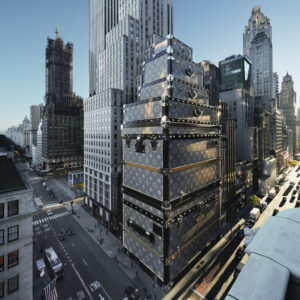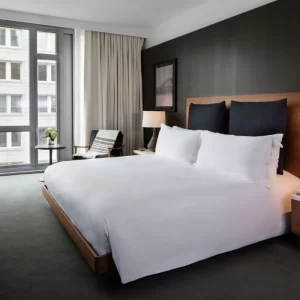About Time You Met: Natalie Campbell MBE, Co-CEO of Belu WaterBy Angelica Malin
Natalie Campbell MBE is an award-winning social entrepreneur, broadcaster and co-CEO of Belu water. Belu is celebrating its 10 year anniversary with WaterAid this month which has seen them donate £5m of their net profit to date. They’re certified carbon neutral and have transformed 333,779 lives through access to clean water and toilets.
We chatted to Natalie about Belu’s ethical business practices, the next big thing in sustainability, and her advice to young female leaders:
Belu is celebrating its 10th Anniversary supporting WaterAid, can you talk through what it feels like to be at the helm of the brand during this momentous time?

It is an absolute privilege to join a business with such a longstanding and credible partnership. While I can’t take any credit for past performance – it belongs to the team – I am a passionate custodian of the next 10 years working hand-in-hand with WaterAid to end water poverty and bring clean water, decent toilets and good hygiene to everyone, everywhere.
Over the last year we have refined our purpose to align our social and environmental goals, Belu’s new purpose is to ‘change the way the world sees water’. This is about water, but also responsible production and consumption and tackling the climate emergency through responsible operating models that regenerate the environment and don’t damage it. WaterAid also has a huge climate commitment, I’m excited about what we will create to get us closer to this goal.
You were recently awarded your MBE in October 2020 for services to entrepreneurship – congratulations! How did this feel?
What are your ambitions for the future for Belu – what does the next big thing in sustainability look like?
It’s incredibly empowering to see women taking on important leadership roles at key businesses – what advice would you give to the next generation of young female leaders looking up to you?







